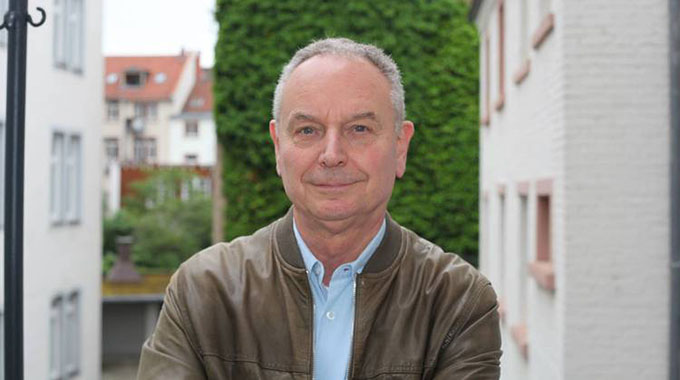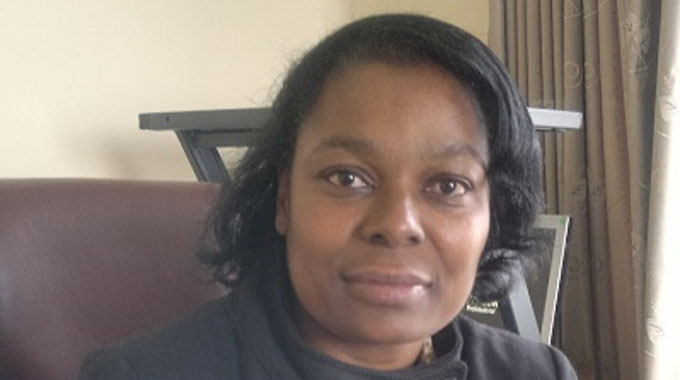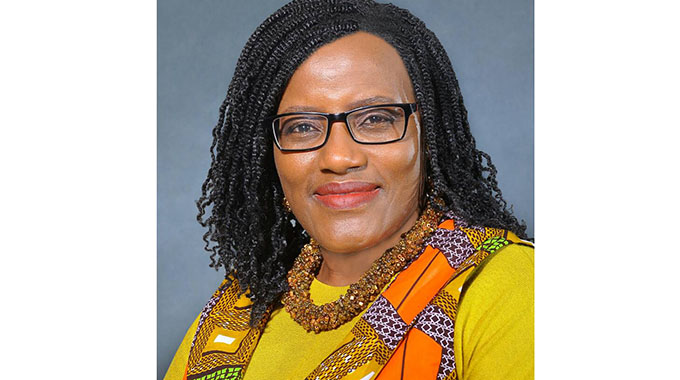An encounter with Manfred Metzner

Tanaka Chidora Literature Today
A month ago, I visited Germany and stayed there for a week. The purpose of my visit was literary. So during that week, I had the chance to interact with various literature personalities (writers, critics and publishers).
I was particularly impressed by the prominence of African literature in Europe and how European literary intellectuals and publishers are keen to advance and talk about African literature.
On the day of my arrival, my host, Magdalena, showed me around Frankfurt. At one point, we spent almost 10 minutes arguing about whether Frankfurt is smaller than Harare. I told her how I felt like I had Harare in the palm of my hand and Frankfurt felt like this sprawling thing that could not fit in my palm.
Her argument was that probably because Frankfurt had not yet unveiled itself to me (we conquer cities by walking on their pavements), then any attempt to draw the map of Frankfurt on my palm would come to naught.
As a way of conceding defeat, I agreed to let her select my afternoon menu. Her choice was an oyster. Oysters are funny because soon after eating them you forget how they taste. They leave no memory on your tongue except their slimy passage down your oesophagus.
Then she took me for a walk along the Maine River. I felt like I was walking along the Chivaka River. I saw four ducks which were sun-basking, and it was as if someone had told them to kind of line up (is it what they mean when they talk about having one’s ducks in a row?), and Magdalena told me that the birds had migrated from . . . mmmm . . . is it Egypt? I think she said Egypt.
Anyway, the fact that the birds were from another country, but looked very much at home in Frankfurt got me thinking about space and belonging. Human beings have this way of making things very difficult for each other. You do not just pick your bags and flag down nearest plane and find yourself in Europe the next morning!
Later in the evening of the first day, Magdalena took me to the wood houses. These are like some medieval structures whose medieval ambiance was retained (at least on the outside) while at the same time making them very perfect for 21st century Frankfurt nightlife. I think this was the highlight of my first day in Frankfurt and my memories of Frankfurt are not enough without the wood houses.
Three days later, I found myself at the Frankfurt Book Fair. I could not attend it earlier because of certain commitments elsewhere so I probably missed Tsitsi Dangarembga’s talk at the fair. What struck me as odd was the absence of Zimbabwean publishers at this fair although I was told that they had attended the previous one of 2017.
It was during my search for something Zimbabwean (I was on the point of tears actually because home means more when you are far away from it) that Magdalena’s eyes lit up and she said to me, “I want you to meet Wunderhorn.” I did not know who Wunderhorn was. I thought Wunderhorn was a person.
To cut a long story short, Wunderhorn is Manfred Metzner. When Magdalena introduced me to him, he asked: “Do you know Chirikure Chirikure? And Shimmer Chinodya?” That was how he started giving me an inventory of the various African writers whose works he had translated into German.
These included Chirikure Chirikure and Shimmer, Chinelo Okparanta (Nigeria), Ben Okri (Nigeria), Helon Habila (Nigeria), Binyavanga Wainaina (Kenya), Ellen Banda-Aaku (Zambia), Mia Couto (Mozambique), Lebogang Mashile (South Africa), Niq Mhlogo (South Africa), Ishmael Beah (Sierra Leone), Ondjaki (Angola) and many others. It was as if Africa had gathered in the Wunderhorn publishing house.
When I asked him why he was devoting his time and resources to this, he answered, with a detectable passion in his voice, that literature has to be read. That’s the whole point of writing and publishing, isn’t it? He said literature has to cross boundaries — physical and linguistic — in order to foster the spirit of human interaction that is contained in literature. What we create must get out there, and language should not be a barrier!
I was impressed by the work Manfred Metzner is doing. His passion for the creative works that are being produced in Africa humbled me. I have always regarded myself as having a passion for African literature. I have always considered myself as being instrumental in giving it a voice out there.
But besides running a literary blog, writing academic papers and attending academic conferences here and there, I can’t really say I have given African literature a voice in the same way that Manfred Metzner has. Witnessing the amount of work he has put in getting African literature to a German audience has fuelled my desire to do more!









Comments